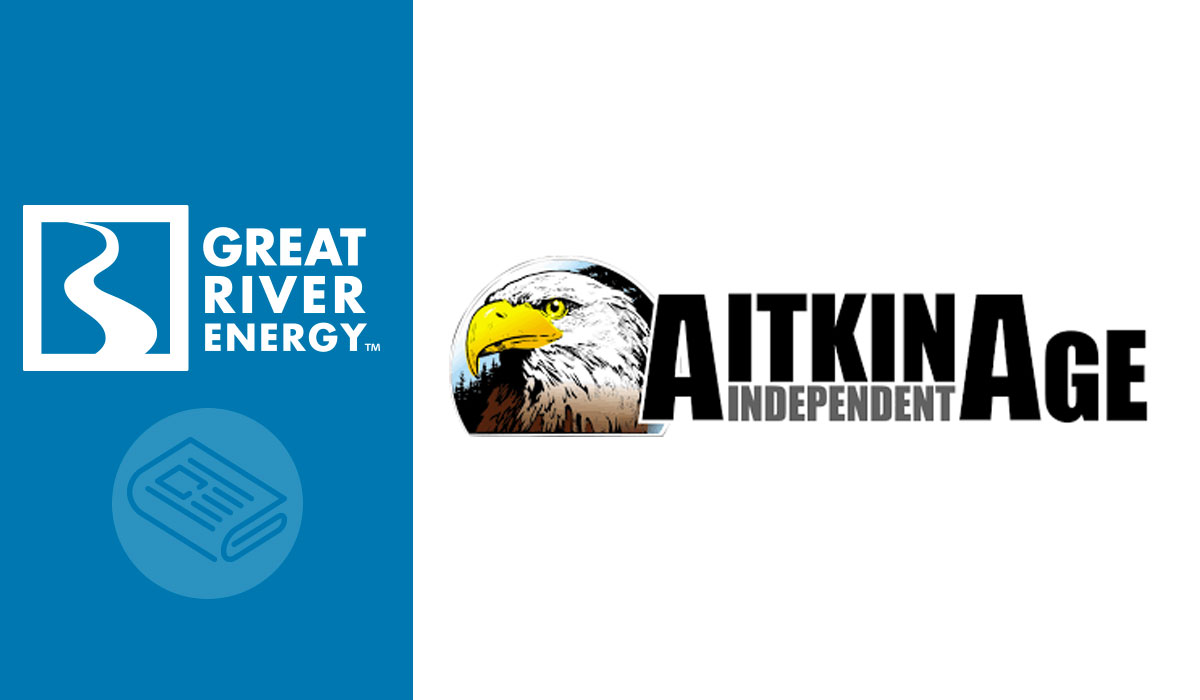Incubators give power to entrepreneurs

11 Jul 2022
News
Entrepreneurs often travel a journey of self-doubt regarding their solutions to a problem. Taking a brilliant idea to the point of business realization can be intimidating. Entrepreneurs in rural communities face significant hardship, as many in those areas face limited access to resources and services compared to more urban areas. Business incubators are often an excellent method to overcome these barriers.
“Incubators offer idea validation and can assist in turning it into an actual business,” said Elissa Hansen, president and CEO of Northspan, a private, nonprofit consulting firm operating out of Duluth. “Incubators give power to the entrepreneur.”
Many of Great River Energy’s member-owner cooperatives are in rural communities that have recognized the need to drive small business development. That focus has led to several existing and planned business incubators. Great River Energy has promoted these as a sound economic development strategy for its communities, often assisting its members with resources like the USDA Rural Economic Development Loan & Grant (REDLG) Program to fund these projects.
Incubator importance
More than a decade ago, the National Business Incubation Association found companies that participated in a business incubator had an 87% success rate, double the rate for those that did not. Incubators offer many advantages to entrepreneurs and small businesses. They foster connectivity and networking with experts who have already traveled down a similar path. That environment also facilitates putting entrepreneurs in touch with those capable of arranging financial assistance, allowing an easier transition for business growth and surviving the initial, vulnerable stages many startups experience. Incubators often provide physical office space or training at free or reduced costs.
Hansen said the importance of business incubators is amplified in rural communities.
“There are many more opportunities for entrepreneurs and business persons to connect in urban areas,” she said. “Incubators are necessary in rural communities to be that place where entrepreneurs can gather to share and further their ideas.”
Additionally, said Hansen, most entrepreneurs do not know they need the services incubators can supply.
“Most entrepreneurs are creative, hands-on makers who find the prospect of selling their idea, having employees or managing finances quite intimidating,” she said. “Incubators can turn those makers into businessmen and businesswomen.”
Tribal Economy Business Incubator
Mille Lacs Corporate Ventures (MLCV) was created by the tribal government of the Mille Lacs Band of Ojibwe in the 1990s to manage its business and economic development affairs. After 30 years of operation, MLCV is now operating five lanes of business – gaming, hospitality, marketing, in-district investing, and government contracting. One of MLCV’s priorities is to help create a robust middle class, which the company recognized cannot be done without entrepreneurism or economic development in the region.
 “We were motivated to find ways to support local entrepreneurs better to meet the needs of the Mille Lacs Tribal Economy,” said Dustin Goslin, MLCV vice president of business and economic development.
“We were motivated to find ways to support local entrepreneurs better to meet the needs of the Mille Lacs Tribal Economy,” said Dustin Goslin, MLCV vice president of business and economic development.
In 2020, MLCV hired Northspan to assist in background research, community surveys and focus groups to determine the need and resources currently in the region. Six in-person and virtual focus groups with local stakeholders across the Tribal economy included a cultural invocation, a review of the economics and demographics of the local economy, information on entrepreneurial resources and participant input on possible incubator design and operation. Attendees also expressed appreciation for a space where Tribal and non-Tribal community members could work collectively toward shared goals.
Northspan’s findings perfectly matched the entrepreneurial model pioneered by the Neighborhood Development Center in the Twin Cities. The model focuses on four pillars to develop a community from within through training, financing, services and physical real estate. MLCV’s work with the Enterprise Academy covered the first three pillars, but the group decided the real estate piece needed additional focus.
The result is the Tribal Economy Business Incubator (TEBI) project to create physical regional business incubators that would allow actual locations for entrepreneurs to develop their business ideas. The Mille Lacs Band has recently received a $3,132,900 preliminary award from the U.S. Economic Development Administration through its Indigenous Communities program. Mille Lacs Corporate Ventures will use the investment to build business incubators to aid Tribal and non-Tribal entrepreneurs and businesses in the Mille Lacs Tribal Economy. One will be on Main Street in Onamia in an old bank building as a resource for professional services and small production capabilities. The other will be in Hinckley on a site along I-35 near the old Mission Creek theme park. The site will house retail businesses that can build on the success of and collaborate with existing organizations like the East Central Regional Arts Council. Current plans are for the incubators to be operational by the end of 2023.
“While resources exist near the region, they are not geographically close to much of the tribal economy population,” Goslin said. “The reality is if they are not close to the entrepreneurs, they are difficult to access, so creating these incubators will allow us to serve those individuals with excellent business ideas.”
The Economic Development Association of Minnesota recognized the TEBI project in early 2022 with its Project of the Year. Additionally, MLCV held its inaugural Mille Lacs Tribal Economy Summit in late May. Its purpose was to gather the public, entrepreneurs, business owners, residents and elected officials of entities within the Mille Lacs Tribal Economy to gather and discuss possibilities for an inclusive, purposeful and innovative tribal economy. Further information about MLCV’s activities can be found here.
 Pine Innovation Center
Pine Innovation Center
Pine Tech & Community College (PTCC) in Pine City is home to the Pine Innovation Center. The 7,500-square-foot facility opened in 2014 and was partially funded with a loan administered through East Central Energy, one of Great River Energy’s member-owner cooperatives. The incubator is intended to support, educate and champion entrepreneurial high-tech and light manufacturing ventures to augment the region’s economy by establishing and maintaining companies and employment in the area.
Additionally, the Center serves as an excellent resource for related courses through PTCC and the ability for PTCC students to obtain practical experience in applicable industry practices. Entrepreneurs can also access professional services pertaining to business life cycle stages, from business plan development to marketing and website construction. A unique feature of the facility is the Pine Children’s Early Learning Center, a child care center located on the PTCC campus, available to the public, which facilitates the ability of parents to take courses and gain experience without sacrificing care for their children.
EZ Electrical System Solutions was the Center’s first tenant and an excellent example of how a business incubator can benefit a community. The company operated out of the Center for three years as it developed its product lines. Today, it operates out of nearby Cambridge and describes itself as “a family-owned and operated manufacturer of new-to-the-world electrical switch and outlet boxes which work in tandem with other proprietary electrical products as a system designed to save the installer time and improve the safety of end-users.”
 North Shore Business Enterprise Center
North Shore Business Enterprise Center
The North Shore Business Enterprise Center in Two Harbors has provided business assistance to Minnesota entrepreneurs for over two decades. It started in 1996 with REDLG funding from Cooperative Light & Power, another of Great River Energy’s member-owners, and today is a 17,000-square-foot, state-of-the-art space that helps tenants reduce overhead costs. Users can also utilize shared office equipment and support staff in the 3,000-square-foot commons area, including a conference room, lunchroom, and shared office space. The University of Minnesota-Duluth Center for Economic Development has an on-site specialist to provide entrepreneurs with one-on-one technical assistance.
The incubator supports regional economic diversification through job creation by facilitating the successful development of small startup businesses, primarily in manufacturing, technology and research and development.
Other resources
In addition to these business incubators, several organizations within Great River Energy’s service area offer their expert resources and services with the sole purpose of helping local entrepreneurs and small business owners overcome the hurdles facing them today.
More Topics

Trading Goals For Pathways
Jul 11 2022


